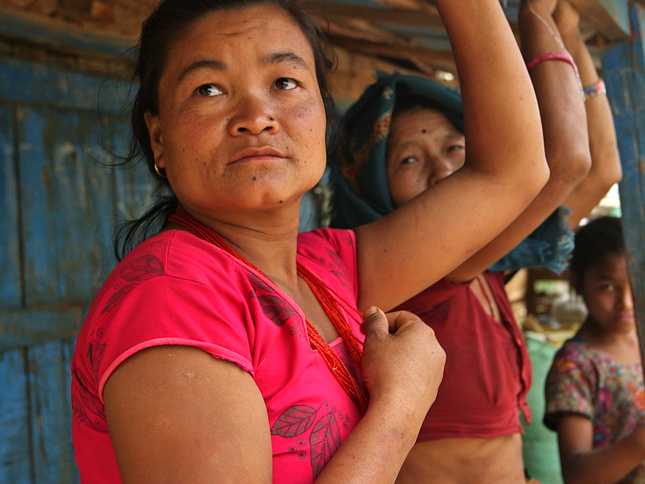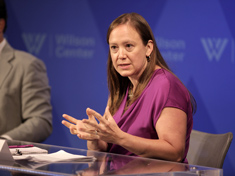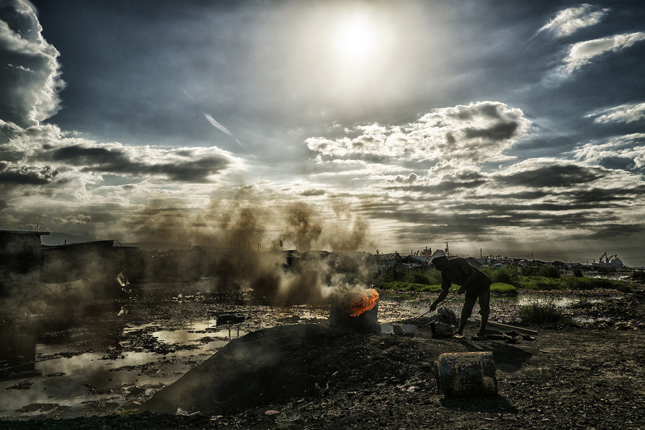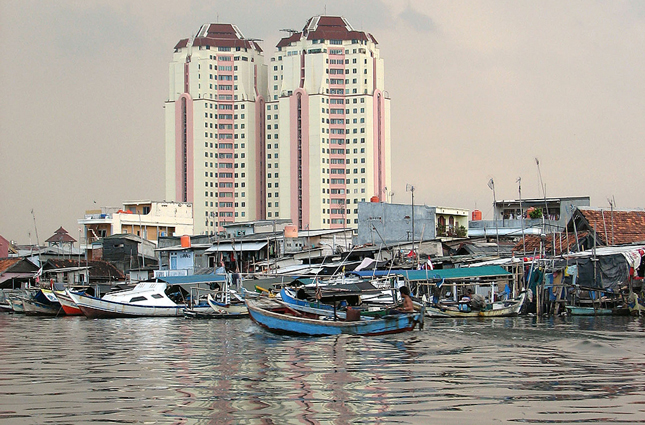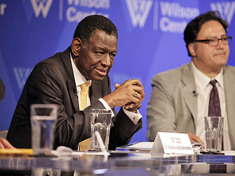-
Africa’s Trifecta: Food Security, Resilience, and Demographics at the U.S.-Africa Leaders Summit
›August 5, 2014 // By Roger-Mark De Souza
“You can’t build a peaceful world on an empty stomach,” Secretary of State John Kerry said yesterday at a high-level working session on resilience and food security, quoting Norman Borlaug, the father of last century’s “Green Revolution.”
-
Three Things to Watch at the First-Ever U.S.-Africa Leaders Summit
›As presidents, prime ministers, and other policymakers from across the continent gather in Washington, DC, this week for the first-ever U.S.-Africa Leaders Summit, what are the issues to watch?
-
Family Planning and Environmental Sustainability Assessment Aims to Shed Light on Pop-Environment Link
›
As global environmental change accelerates, understanding how population dynamics affect the environment is more important than ever. It seems obvious that human-caused climate change has at least something to do with the quadrupling of world population over the last 100 years.
-
Suzanne Ehlers: Global Development Agenda Needs Re-Framing to Focus on Rights of Young People
›
Successfully incorporating the rights of young people and women into whatever development agenda succeeds the Millennium Development Goals next year hinges not only on the scope of new goals, but how those goals are worded, says Suzanne Ehlers in this week’s podcast.
-
Melinda Harm Benson and Robin K. Craig, Ensia
The End of Sustainability?
›July 30, 2014 // By Wilson Center Staff
The time has come for us to collectively reexamine – and ultimately move past – the concept of sustainability. The continued invocation of sustainability in policy discussions ignores the emerging realities of the Anthropocene, which is creating a world characterized by extreme complexity, radical uncertainty, and unprecedented change. From a policy perspective, we must face the impossibility of even defining – let alone pursuing – a goal of “sustainability” in such a world. It’s not that sustainability is a bad idea. The question is whether the concept of sustainability is still useful as an environmental governance framework.
-
New Research Explores Causality of Climate-Related Conflict, Effectiveness of Migration
› Migration is an “extreme” form of climate adaptation, but it does pay off for some, write Md. Monirul Islam et al. in a new article in the journal Climatic Change. In a study analyzing two Bangladeshi fishing communities, one long-established, the other the result of migration, the authors examine the effects of climate-induced migration on livelihood vulnerability.
Migration is an “extreme” form of climate adaptation, but it does pay off for some, write Md. Monirul Islam et al. in a new article in the journal Climatic Change. In a study analyzing two Bangladeshi fishing communities, one long-established, the other the result of migration, the authors examine the effects of climate-induced migration on livelihood vulnerability. -
Don’t Forget About Governance: The Risk of Tunnel Vision in Chasing Resilience for Asia’s Cities
›
Asia is going through an unprecedented wave of urbanization. Secondary and tertiary cities are seeing the most rapid changes in land-use and ownership, social structures, and values as peri-urban and agricultural land become part of metropolitan cityscapes. All the while, climate change is making many of these fast-growing cities more vulnerable to disasters.
-
Babatunde Osotimehin: “The Youth Agenda Has Never Been More Important”
›
More than 1.8 billion people – nearly a third of the global population – are between the ages of 10 and 24, comprising the largest-ever generation of young people. According to Babatunde Osotimehin, executive director of the United Nations Population Fund (UNFPA), “how we meet the needs and aspirations of these young people will define the world’s future.”
 A Publication of the Stimson Center.
A Publication of the Stimson Center.

